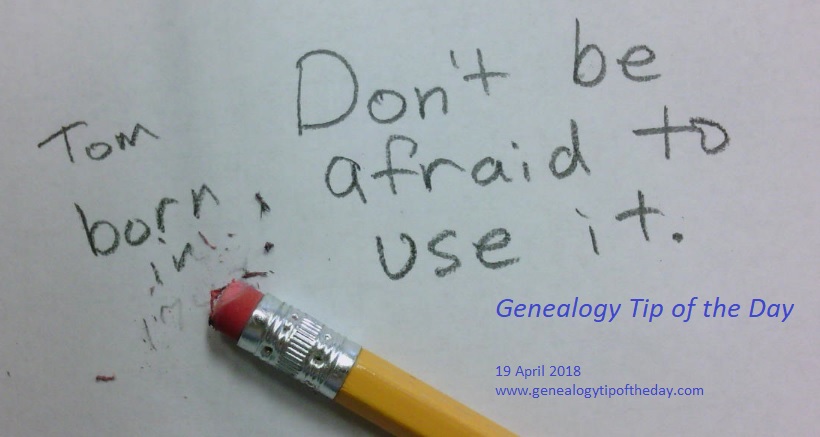Review your conclusions. Take a second look at material you compiled early in your research. Be willing to question research your “finished” years ago. Admit mistakes when you make them. It’s not the end of the world. You should want your research to be correct. Genealogy is not a crusade to show your first conclusion was right no matter what. We all learn as we research and sometimes we learn that our first conclusion was not right.

Categories:
Tags:








3 Responses
Use a pencil for everything I write, much easier to erase than white out or crossing over the incorrect info.
When I first became interested in genealogy, I knew very littlle about my ffather’s granfather, except that he had come from Ireland as a child. during the Famine. I knew his approximate year of birth and his full name, but knew nothing of his parents and siblings—if any. When I discovered that an elderly neighbor (since deceased) was an active genealogist, I shared with her my few tidbits of information. She was thrilled to have another challenge, and searched Ancestry and ships’ registers for a little guy with the right name and time period. She concluded that my g-g grandfather and (large) family had arrived on the Yorkshire, and even found a picture of the ship. Soon after, I attended a get-together with my cousins on that side of the family, and presented my newfound “facts.” And then I did my own research, discovering that this was a whole other family. Ten years later, I have tons of information about my great grandfather and his family, but still don’t know what ship they came on, or to what port (suspecting Canada, but no way to find out). Sorry, cousins, I misspoke! No great aunt Isabella, after all! Will you settle for another Mary?
Glad to have continued encouragement in my researching of families. Thank u all.